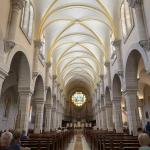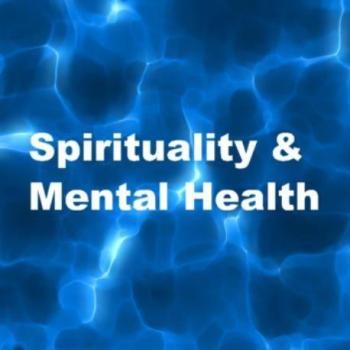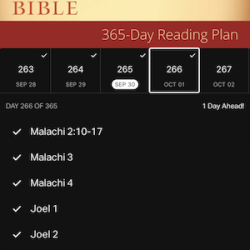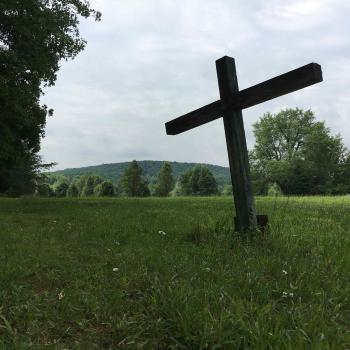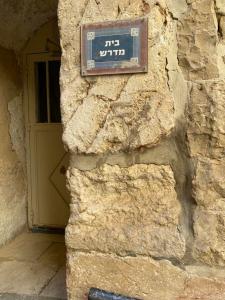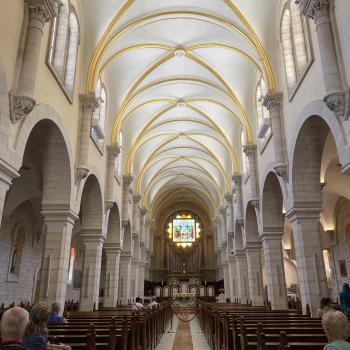I believe that after ten events and three years, The Church in Dialogue has already begun to accumulate the raw materials for an interesting story. And should these materials ever be ordered in such a way so as to tell an entertaining yarn, it would be a tale propelled not simply by conflict and resolution, but largely by questions. Before an event series like this could even be brought to the drawing board, certain questions had to be explored. Some were difficult, yet crucial to the task at hand, and others decidedly less complicated, but no less important. In the words that follow, I will examine three primary questions that have acted as supporting pillars for our efforts with the ministry known as The Church in Dialogue.
In the Beginning

In late summer 2020, as a budding idea amidst the difficulties associated with that unfortunate season in American history, the bones of what would be called The Church in Dialogue began to form. At this time, it was decided that The Church in Dialogue would be a live discussion on theology between representatives of different Christian denominations, but with this assumption came the first difficult question that needed to be addressed: “Who would have a place at this discussion table?” “What traditions need to be represented in interdenominational conversations on Christian faith and practice?” After much deliberation, an answer to this query was provided in the form of certain requirements for participation.
Because of Scripture’s binding authority, each speaker that has been given a platform at one of our events not only confesses the great creeds of the historic Christian faith but also affirms those moral principles that are necessitated by God’s holiness and the inherency of His revealed will. Quite a few representatives have qualified since we began this journey; the Church in Dialogue has included not only orthodox Presbyterians and Baptists, but also theologically conservative Anglicans, Pentecostals, Methodists, Lutherans, Roman Catholics, Nazarenes, Reformed, and Eastern Orthodox Christians since its founding three years ago.
In these early days, questions blew breath into the nostrils of The Church in Dialogue as a ministry. Indeed, the first event held in Shepherdsville, KY itself began with its own guiding inquiry. Introducing the new event series to a room of people I began with the next question that we will pursue in this post: “What is the end goal of this project, its reasons for being?” I feel that it is well worth revisiting such a question now, not only to describe The Church in Dialogue to those of you who are unfamiliar with it but also as a method of reflecting back on the last three years of striving toward the goals that provoked it.
A Way of Wisdom
So what are its reasons for being? For one, this event series was founded with the hope that it would contribute to the theological literacy of all those who attend its installments; it exists to explore nuanced doctrinal topics, bringing more attention to them and encouraging us to learn more about our own denominational affiliation. The Church in Dialogue seeks to supplement, with further investigation, the wholesome teaching that should be delivered to the saints from the pulpits and the classrooms of the churches that we regard as our home—but never replace it.
Moreover, because this event series includes the participation of multiple Christian traditions, we are, by being present, apprehending an improved awareness of the beliefs of those believers who occupy space in our community, and possibly even our family. The Church in Dialogue presents an opportunity for Christians to learn more about those who attend churches other than their own. Indeed, many people have legitimate motivations for holding to the specific doctrines that they do. It is for this reason that we should seek mutual understanding when it comes to our orthodox brethren in order to generate greater compassion for one another, pursue truth, and discover what hidden agreements might lie in waiting just below the surface of theology’s dense, outer coating.
May We Be One
The second reason for which The Church in Dialogue exists builds upon the first; by learning more about one another, and gathering together, we are creating more opportunities for us Christians to recognize, pursue, and enjoy unity as members of Christ’s body. Of course, in one very important sense, the Church is already unified; true Christians are, at present, united by the Holy Spirit as a result of the faith that they have in Jesus, their Lord—and that unifying power, this project asserts, is not limited to a single church or tradition, (yet there are limitations). The Church in Dialogue lives to serve as a reminder of the unity that has already been accomplished by the blood of Christ Jesus.
Truly, unity exists now, but it is predominantly only an invisible church that can lay claim to and savor this unity; visible divisions, distinctions, and severed communions remain among us Christians today, as you well know. As a result of this reality, The Church in Dialogue also pursues, through interdenominational discussion and fellowship, visible unity amongst Christ’s followers. Whatever form it would take, should it ever come to pass, we intend to work, if only microscopically, toward the immense goal of a Church visibly unified. It is a task assumed with much humility and responsibility, however, because differences can never be glossed over, nor truth dispensed with if any lasting, God-honoring effects are to be realized by engaging in this work.
The Church in Dialogue draws breath to express and cultivate unity, invisible, visible, but also imperfect. At these events, we Christians of different convictions gather together in a church building with the express purpose of discussing theology, but not only this. We also sing psalms and spiritual songs together, as well as pray to our God. By engaging in these beautiful acts of worship, we are communicating a unity that evades full communion, but nevertheless represents something immense; we can recognize the faithfulness of one another, without affirming the validity of contradictory claims concerning humanity, and its Creator.
It is a unity that evades wholeness, yet exists simply because of our presence together. It is my prayer—and has been since the very beginning of this project—that spectators and participants in this ecumenical discussion would endeavor, without denying the significance of our differences, to place a strong emphasis on those aspects of the Christian faith that knit us together, so that we may if even for a moment, come together as a unified body with its eyes fixed upon Christ.
To God Be the Glory
To begin concluding this post, there is one final goal that this project seeks to accomplish, and it should be regarded simply as an end to the two means that we have already examined. As Christians, we explore theology, seek truth, and pursue unity whenever possible for the express purpose of worshipping and glorifying the Father, Son, and Holy Spirit with our whole and absolute being, for there is no comfort in anything apart from Him. He is the author and finisher of our faith, and the whole work of redemption is His alone. To give honor to God, and to declare His glory are the ultimate reasons for The Church in Dialogue’s existence.
Over the last several paragraphs, I have said much about this event series, its reasons for existing, and how questions have directed its footsteps. Now to summarize, I believe that the third and final pillar question is in order. So what precisely is The Church in Dialogue? Well, to put it succinctly, The Church in Dialogue is a series of conservative ecumenical panel discussions and joint worship services between all orthodox Christian denominations that hold to the authority of Scripture and adhere to the fundamental tenets of the historic Christian faith.
If you are interested in learning more about The Church in Dialogue, please visit our website, thechurchindialogue.com, or send us a message at thechurchindialogue@gmail.com.


